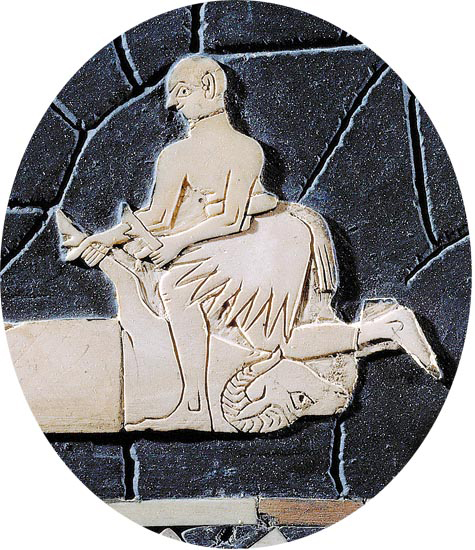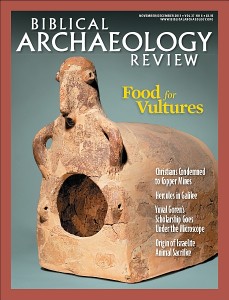
Sacrificing animals to God—a major activity in the Temple—must certainly seem odd to us in the 21st century. Where did the practice come from? The Israelites didn’t invent it.
Scholars have hypothesized its origin in prehistoric times, not long after the domestication of plants and animals. Others argue for a Greek origin as reflected in early Greek literature.
The most convincing evidence, however, comes from Mesopotamia. Here we have not only, as in Israel, the canonical (literary) formulations of how sacrificial rites are to be performed, but also economic texts providing accounts of events after the ritual and objectively recorded, detailing the expenses of each step in the ritual against the possibility of a future audit by a higher authority. These records leave no doubt that in Mesopotamia, animal sacrifice, though ostensibly a mechanism for feeding the deity, was at best a thinly disguised method for sanctifying and justifying meat consumption by human beings—a privilege routinely accorded to priesthood, aristocracy and royalty, and sporadically, notably on holidays and holy days, to the masses of the population.
Already a library member? Log in here.
Institution user? Log in with your IP address.

